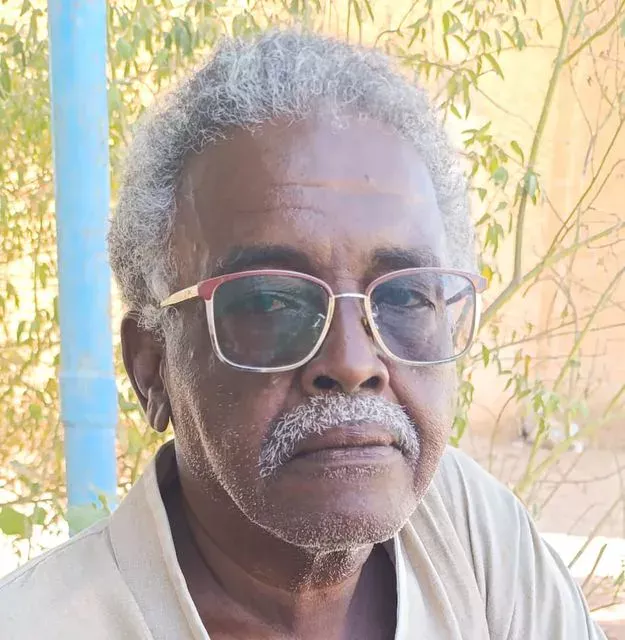Playwright and playwright Muzammil Suleiman Ahmed.. His dream is paper and ink, and his cause is to write history as it should be.. ✍️: Khaled Muhammad Al-Baqir

🔵 In the midst of the harsh events of the displacement, he heard the echo of the footsteps of the passionate playwright Muzammil Suleiman Ahmed.
He roamed the streets of Shendi Town, picking up stories from every angle. He reflects in his writings the experiences of the Sudanese people who live under the influence of war, particularly that of the Janjaweed. This sensitive creator humbly asked for paper and pens to write his stories that embody pain and hope. He aspired to create an artistic work addressing societal issues and expressing their daily suffering, inspired by the bitter reality in which people live.
🔵 The image of societies living in fear and anxiety dominated his thoughts, but at the same time, this suffering gave him a strong motivation to write.
🔵 Difficult circumstances led him to continue his creative work, as he considered every word he wrote as a testimony to the sacrifices of the Sudanese people. Generating dialogue and understanding the deep human picture of events is an integral part of his mission as a writer, trying through his works to give a voice to the voiceless.
🔵 Among his most notable multi-colored works, he has written series such as 'Sikka Khattar' and 'Nawader Juha', in addition to works aimed at children that aim to teach values and culture. He also presented “The Fog Play”, which addresses issues of forgetting and loss, and “Wad Al-Basir Shop”, which addresses social issues in a brilliant artistic way. The radio series he also produced, such as “The Big House” and “Hajj Mudhakir,” made his voice widely heard throughout the decade.
🔵 At the end of his speech, Muzamil stressed the importance of his creativity and his message despite all the difficulties. The power he conveys in his words speaks to human humanity, making art a tool for change and healing. Knowing that theater can be a bridge of communication between people, we must invest and promote this creative energy in order to enhance Sudanese culture and support it in the face of future challenges.






